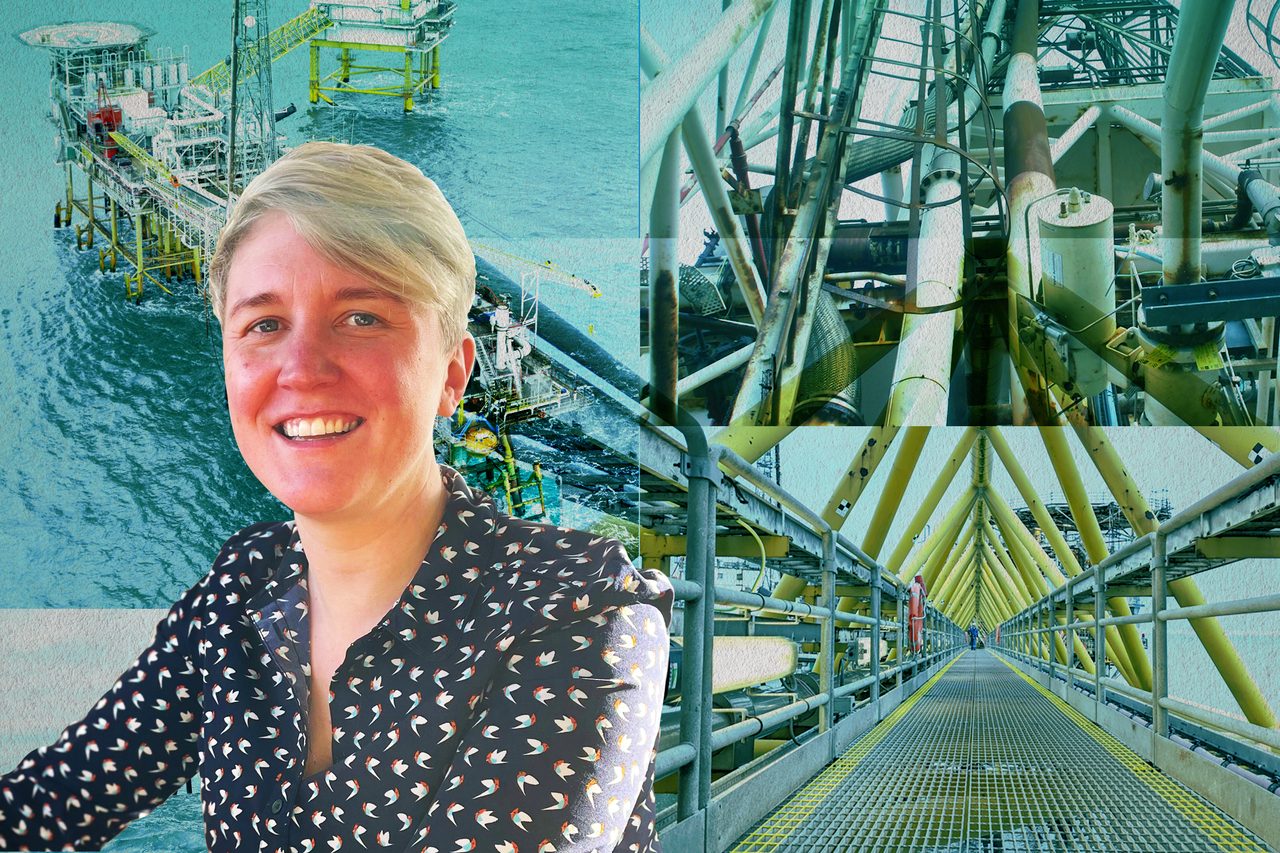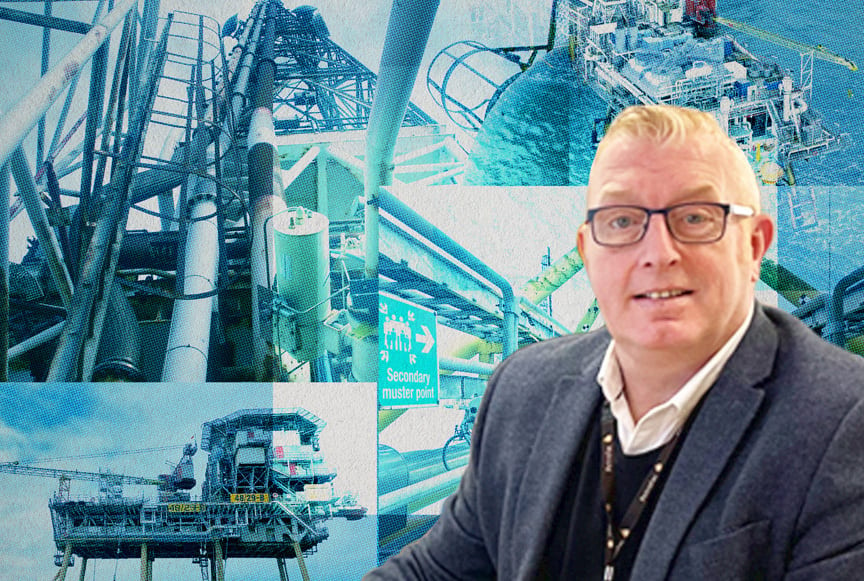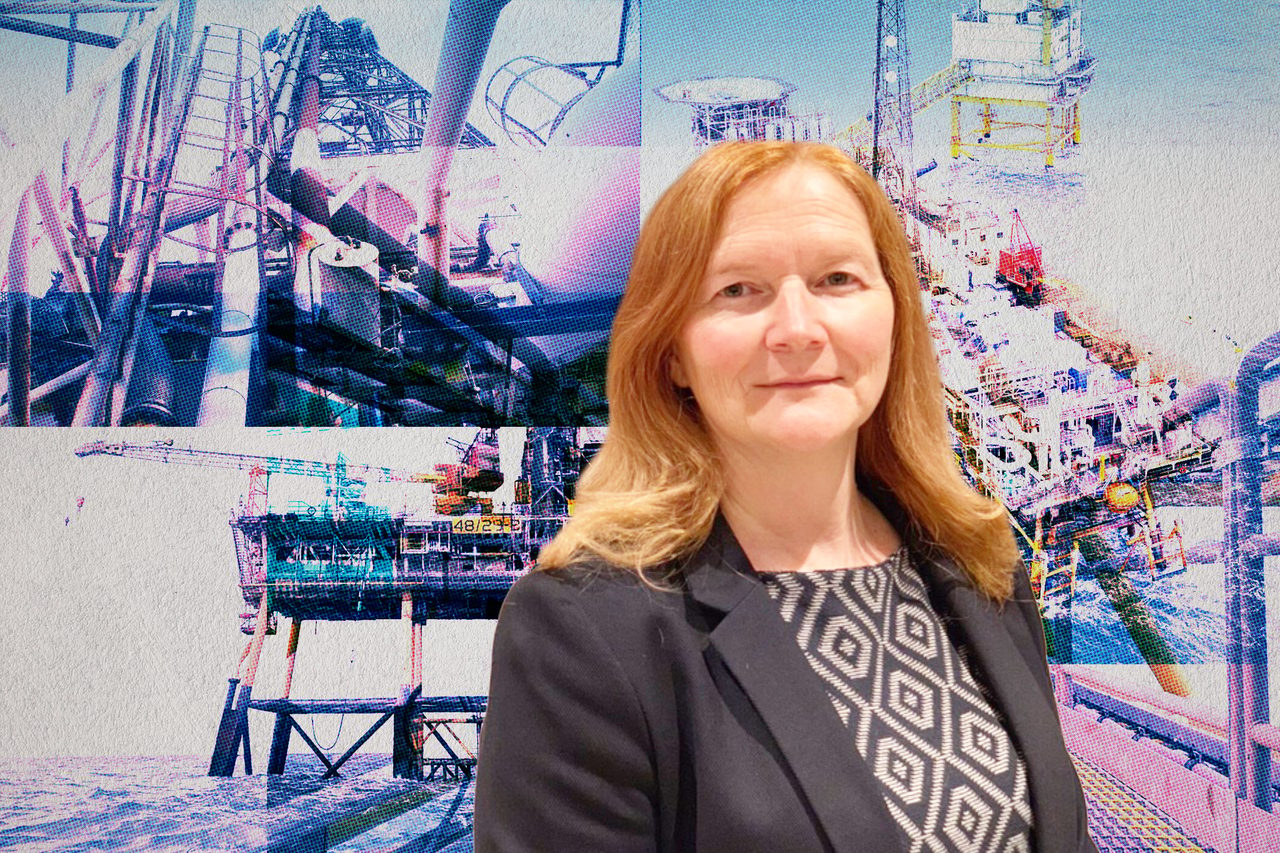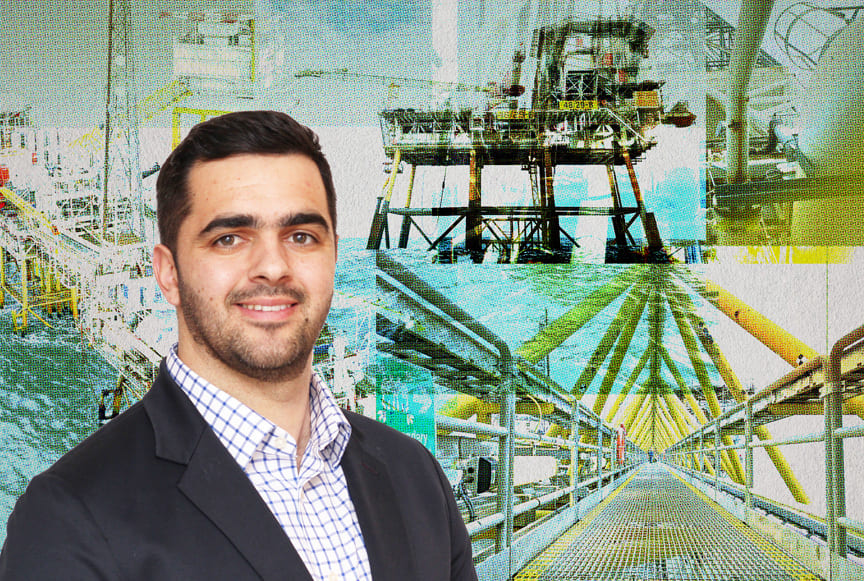PEOPLE
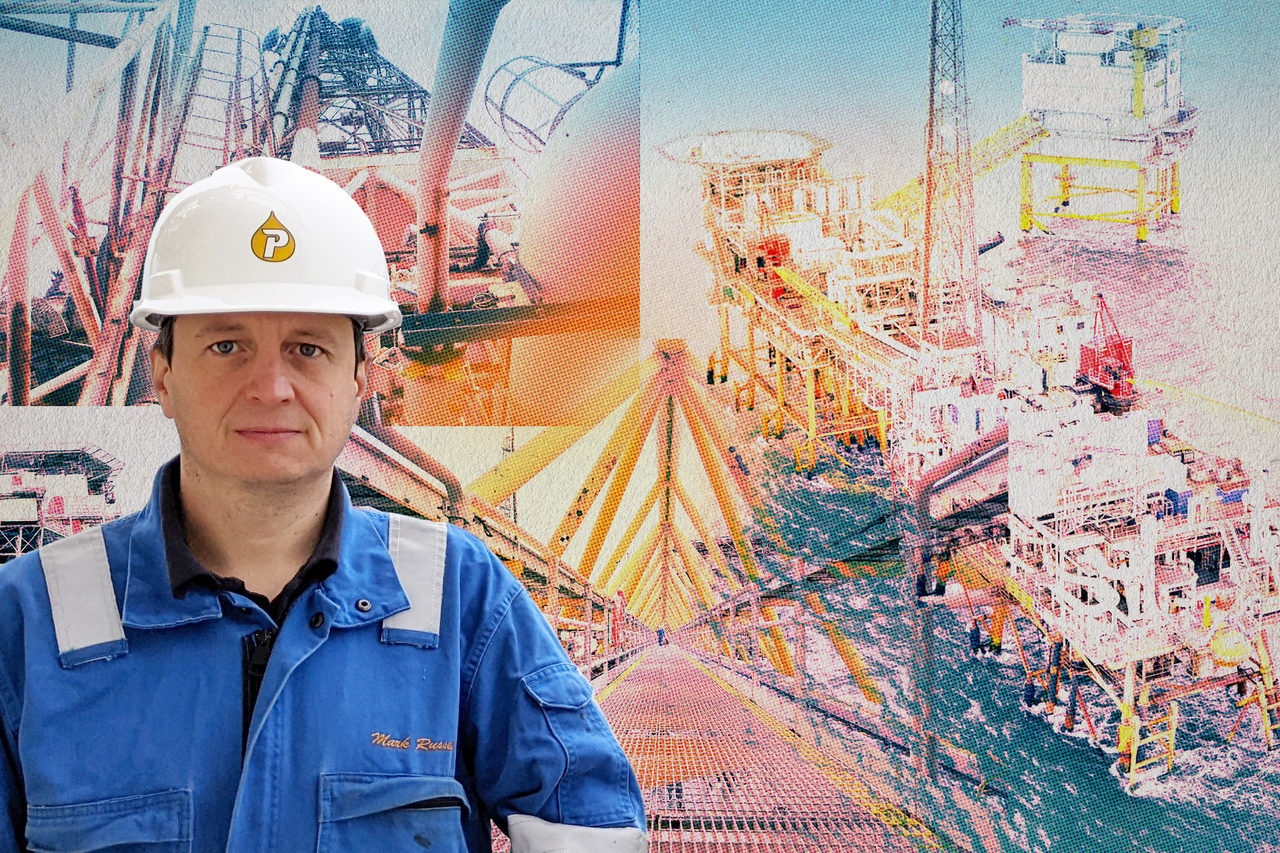
MARK RUSSELL, OFFSHORE ELECTRICAL TECHNICIAN
Born and bred in the Great Yarmouth region, Mark has been working on the Hewett field for 15 years. When he originally trained as an electrician, he worked for a local engineering firm building control panels – some of which he came across, with his initials etched on the back, when he first joined the Hewett asset team back in 2006.
Three days’ work turned into 18 months, which turned into 15 years and counting… When I first went to the Hewett field, it was as a self-employed contractor. It was initially just three days work, which I was reluctant to take on because I needed a break. But that quickly turned into a longer-term role, and I’ve been here ever since.
The sense of camaraderie you get on a small facility like this is incredible… It’s always been a really close-knit team, which is one of the things I love about it. On the central facility there are just 40 people on board, and in the satellites it’s eight or ten. You have no choice but to get on with each other. I remember my 30th birthday, when I was doing a horrendous job and had a horrendous day. The whole crew picked up on my dour mood and everyone rallied around, and it turned into a special evening – one I will always remember fondly.
From the deck, you can see the lights of Great Yarmouth twinkling in the distance… People who don’t know the field could be surprised by how close it is to the shore. It’s just a 15-minute helicopter ride. You can clearly see the coastline, the cliffs of Cromer, the gas terminal, and the streetlights on the coastal road.
I look after everything from a broken shaver point to a faulty generator… As part of the offshore operational team, I’m responsible for everything and anything that’s electrical. For the decommissioning, the biggest contribution I make is to report back on the details of the electrical systems, because either drawings don’t exist or aren’t up to date, and make recommendations to the onshore team. You could say I act as an onsite focal point, who understands the details of the facility.
The decommissioning has been talked about for more than 20 years… It seems as though the field has always been on the cusp of closure, but now it’s finally going ahead. It looks to me like decommissioning is going to be the big thing over the next couple of decades, so it’s good to get in early and learn how to do it for real. I’ve even continued my studies with a view to getting more deeply involved in more decommissioning projects.
“People who don’t know the field could be surprised by how close it is to the shore. It’s just a 15-minute helicopter ride.”
WORDS PETER HALLIDAY
PUBLISHED FEBRUARY 2022
